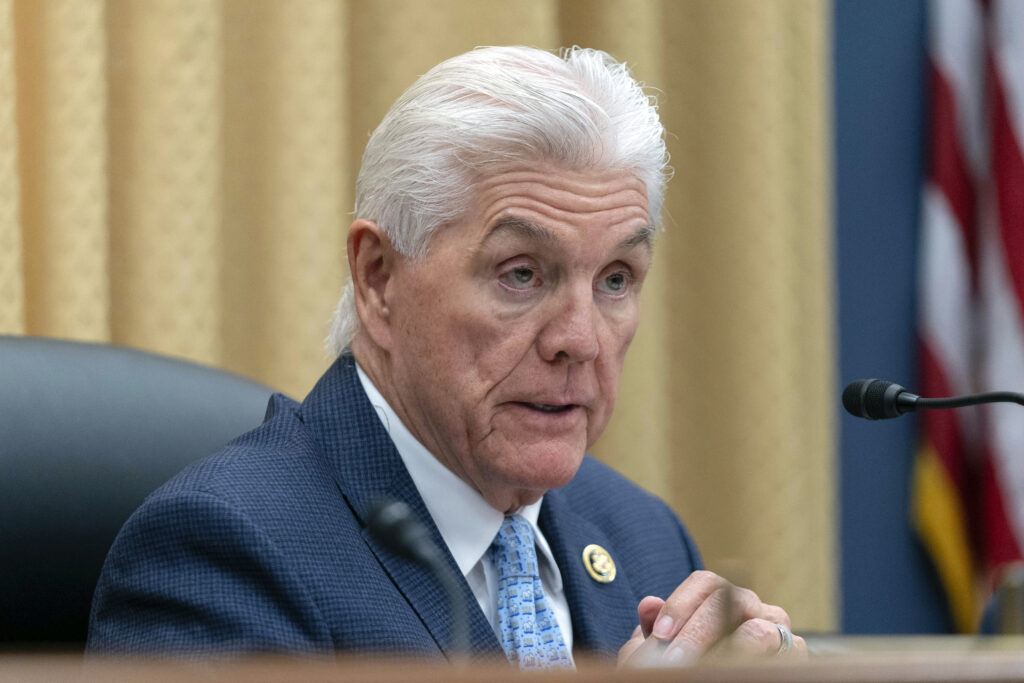EXCLUSIVE — Republican lawmakers are accusing the State Department of threatening to obstruct their investigation into “censorship” of companies in the United States.
House Small Business Committee Republicans have continued to request grant records from the State Department’s Global Engagement Center for an inquiry into “government censorship and revenue interference of American small businesses by proxy,” which the committee launched after a series of Washington Examiner reports on the interagency group funding the Global Disinformation Index, a British think tank blacklisting conservative media from advertising dollars. Now, the Biden administration is asserting it may resort to letting the GOP-led panel review documents solely under in camera supervision, which lawmakers say is a “veiled threat to further impede” their investigation, letters show.
“Not only is this an impermissible standard, but it improperly hinders congressional oversight,” House Small Business Committee Chairman Roger Williams (R-TX) and Rep. Beth Van Duyne (R-TX) wrote in a letter Friday to GEC special envoy James Rubin and Naz Durakoglu, assistant secretary of state for legislative affairs. The letter once more asked the GEC to turn over lists of subcontractors and grant recipients, among other records, plus an internal document titled “2023.02.14 GEC-GDI-BLACKLIST.docx” and for a briefing.
The heightened tension between U.S. officials and congressional investigators comes as the state of Texas and two conservative media outlets, the Daily Wire and the Federalist, press ahead in a lawsuit against the GEC for allegedly funding an unconstitutional “censorship scheme.” The lawsuit names top officials, including Secretary of State Antony Blinken, and centers on the GEC’s prior awarding of federal funds to the Global Disinformation Index and NewsGuard, a company purporting to track “misinformation” online. Both GDI and NewsGuard were mentioned in the 2024 National Defense Authorization Act, which included a provision aiming to ban the Pentagon from awarding them cash.
On Wednesday, Durakoglu sent a letter to Williams “to express the department’s deep concern regarding certain information that appears to have been publicly released by the committee without prior consultation with the department,” according to a copy of the correspondence obtained by the Washington Examiner. The State Department official went on to describe in the letter how the agency provided lawmakers last December with grant record documents that were marked “sensitive but unclassified” and “not for public release.”
“However, on January 9, the Washington Examiner published an article regarding the committee’s investigation, and linking to the documents produced by the department — still clearly showing their ‘SENSITIVE BUT UNCLASSIFIED’ and ‘PRODUCED TO COMMITTEE ON SMALL BUSINESS, NOT FOR PUBLIC RELEASE,’ markings, which it reportedly obtained from the Committee,” Durakoglu wrote in the letter to Williams. “The committee made no effort to consult with the department to protect or even ascertain any particular sensitivities before making the information public.”

Durakoglu wrote in the letter that the agency is “committed to accommodating your need for information regarding the Global Engagement Center,” adding, “without better understanding how the committee will utilize this sensitive information, in the future the department may be forced to only provide the committee with sensitive information that is not suitable for public release in an in camera setting.”
In camera is a Latin legal term that means “in private.” This arrangement would have the effect of barring the committee from obtaining its own copies of documents and, instead, be forced to take copious notes on the grant records.
Durakoglu, who worked for Hillary Clinton’s 2008 presidential campaign and for disgraced ex-Democratic congressman Anthony Weiner, who was sentenced to 21 months in prison in 2017 for sexting with a minor, was referring to a Washington Examiner story in January titled “Biden administration in hot seat for sending Congress ‘incomplete’ records for censorship investigation.”
The January story linked to redacted grant records the GEC produced to the House Small Business Committee. However, the story did not reveal how the Washington Examiner obtained those documents.
Republicans view the State Department’s letter this week as unacceptable and representative of how the GEC has taken steps to avoid complying with requests for information. The House Small Business Committee first asked for documents from the GEC in June of last year, though it did not receive any until six months had passed, according to Williams.
And after six months, all the GEC had to show for its compliance was a five-page spreadsheet that omitted the vast majority of the records Williams and his colleagues requested, lawmakers say.
“This committee will not be deterred by State’s hedging, threats, or other impediments to
its investigation,” Williams and Van Duyne wrote in their Friday letter to Rubin and Durakoglu, who notably was a fellow between 2017 and 2021 for the Atlantic Council’s Digital Forensic Research Lab, a think tank office that partnered with the GEC on the 2021 grant that saw the Global Disinformation Index take home $100,000.
CLICK HERE TO READ MORE FROM THE WASHINGTON EXAMINER
The Atlantic Council’s Digital Forensic Research Lab “appears to have played a significant role in censorship of U.S. citizens during both the COVID-19 pandemic and the 2020 and 2022 U.S. elections,” according to House Foreign Affairs Committee Republicans. Moreover, the taxpayer-backed lab sought to pressure Twitter, now X, to remove 40,000 accounts it claimed engaged in “inauthentic behavior” while boosting Hindu nationalism, though the list was “full of ordinary Americans, many with no connection to India and no clue about Indian politics,” according to journalist Matt Taibbi.
“Today we write to reiterate our previous requests and formalize our request for a briefing,” Williams and Van Duyne wrote in the letter.
